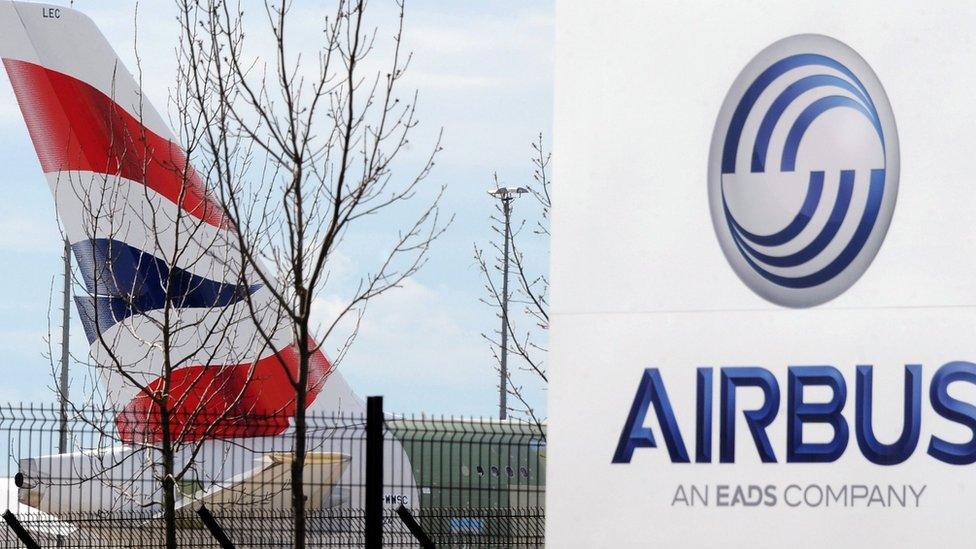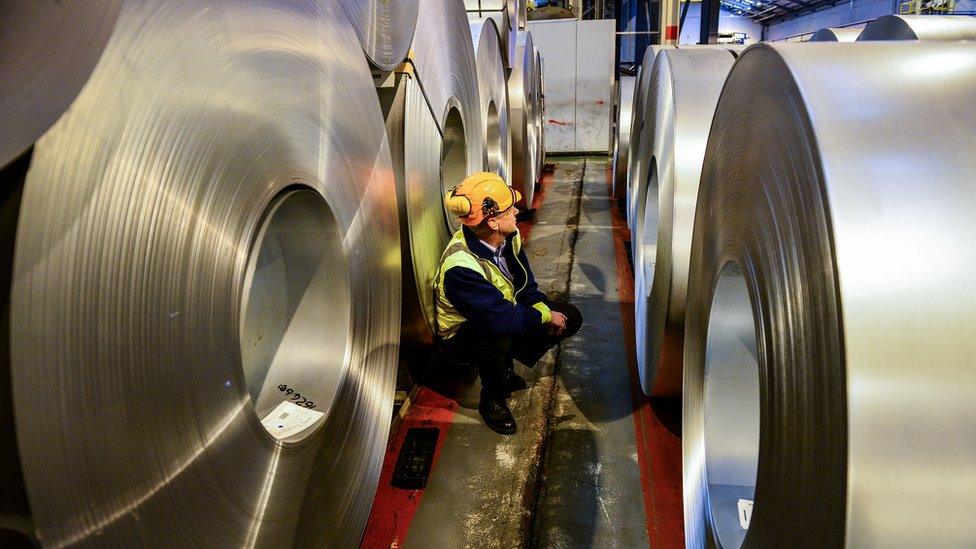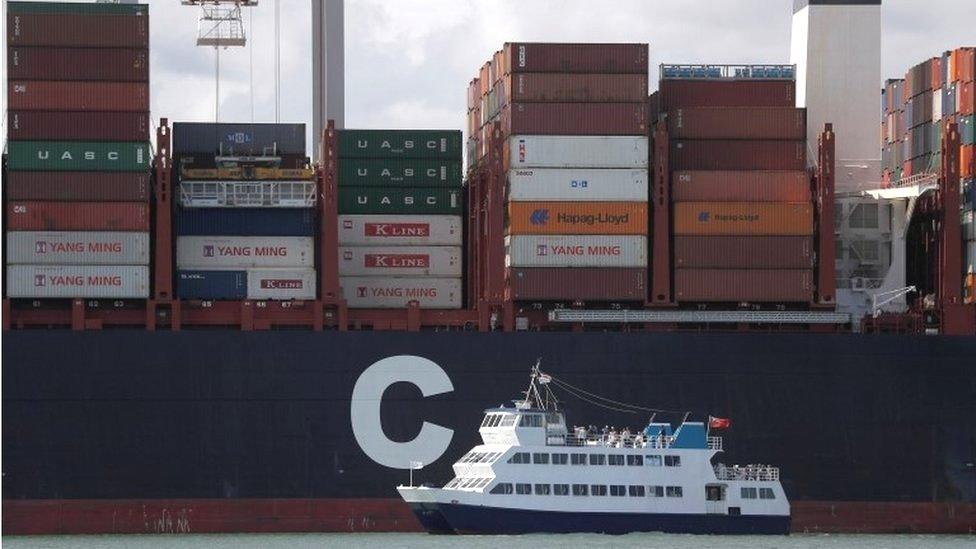Government hopes business will back Brexit "third way"
- Published

Airbus is one of several companies warning that future investment is threatened by lack of clarity over the trading relationship with the EU
Business leaders have been told they will get a preview of the government's final position on customs and trading arrangements ahead of the publication of a government White Paper next Thursday - but NOT before the whole cabinet thrashes out the final contents of the paper on Friday at the Prime Minister's country retreat, Chequers.
I'm told that many members of the full cabinet have yet to receive any documents to review ahead of Friday's crunch talks. Media reports - that businesses would get a heads up before ministers - were dismissed by senior government sources.
However, the government IS hoping that business will do its bit by responding positively to what the government will claim is a new level of post-summit clarity.
It hopes business will be just as noisy in welcoming it as they were in complaining about its absence in the last two weeks.
Large manufacturers including Airbus, BMW and Nissan have all recently warned that future investment in the UK is threatened by lack of clarity on future trading arrangements with the EU, with specific worries about delays at borders caused by new customs procedures.
It's been reported that a new idea will be unveiled at the summit on how to keep the borders friction free - a third way between the two options already considered.
Options
To refresh memories, the first option - the maximum facilitation (or "max fac") model - envisages using new (as yet unspecified) technology to reduce (not eliminate) friction at our ports, airports and, crucially, at the border between Northern Ireland and the Republic of Ireland.
The second, a "new customs partnership" would see the UK collecting EU tariffs on goods bound for European markets on the EU's behalf - and sending them on to Brussels - with the option of paying refunds on goods remaining in the UK.
I'm told that of the two options, the latter was winning the argument in cabinet as it's much cheaper for business and does away with the need for any new physical borders with the EU - particularly important on the island of Ireland. It therefore seems likely that any third way will look more like the customs partnership than the max-fac model.
The problem is that both have been dismissed by the EU as unworkable and that is why some business leaders I've spoken to are sceptical that Chequers and the subsequent White Paper will herald the kind of breakthrough businesses crave.
"Alice in Wonderland" summit
One veteran business leader described the Chequers summit as an "Alice in Wonderland" meeting.
Another told me the credibility of senior UK managers at multinational companies was "completely shot" as messages of reassurance from the government - that were dutifully carried back to their international boards - proved to be "meaningless promises".
However, the director general of the British Chambers of Commerce, Dr Adam Marshall, told the BBC that if the government delivers a settled position from which to base negotiations, business will say "hallelujah".
A senior cabinet minister hoped that Friday's summit would prove to be a "big moment" in the history of the Brexit process.
If the Chequers summit produces a clear position, which has broad support from her own government and provides business with a sense of clarity about what the UK is trying to achieve, then it will have been one.
Theresa May and David Davis will feel they can then finally turn OUTWARD to the EU and legitimately ask them to use more imagination in finding a solution that delivers a version of Brexit which is in the economic interests of both sides.
- Published4 June 2018

- Published21 June 2018
- Published3 July 2018
